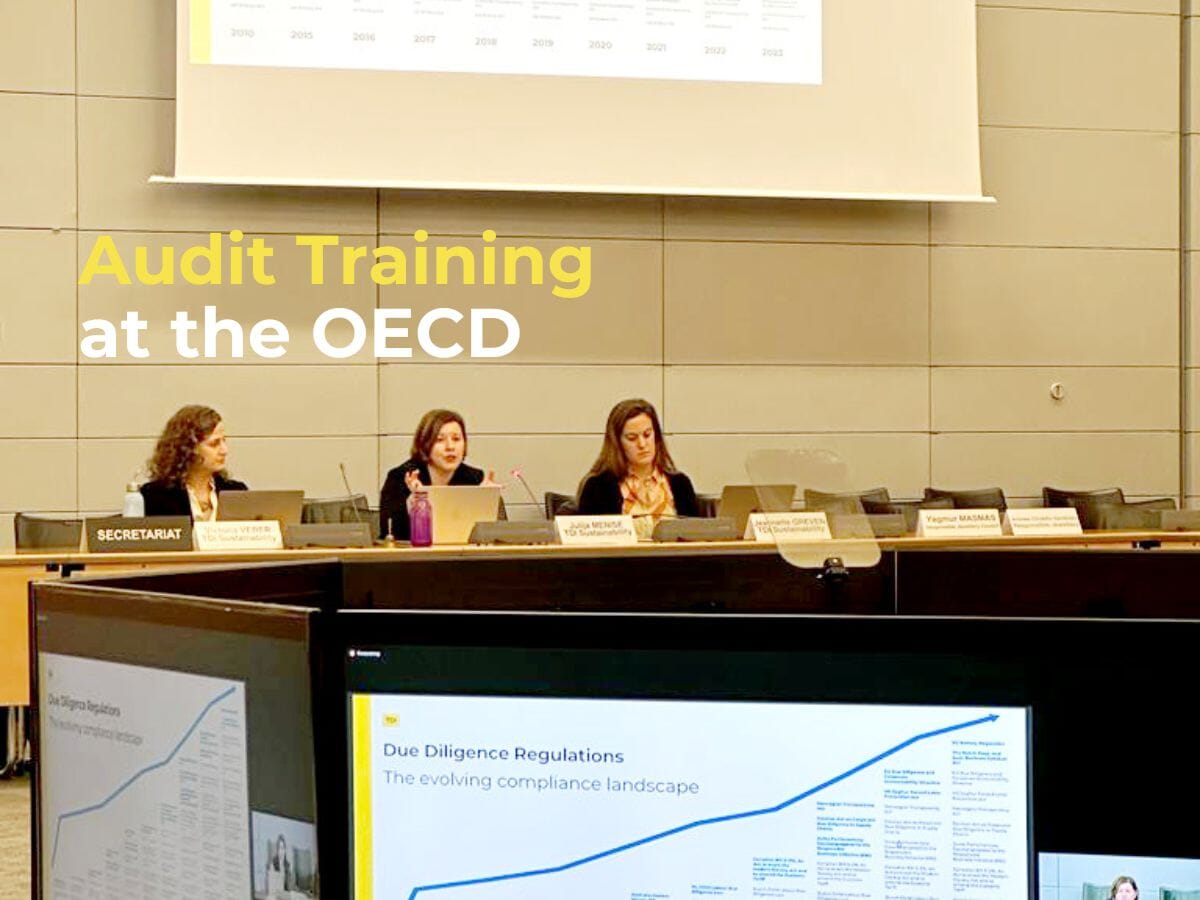
Auditor Training for the ASPSCA

Alongside the rigorous auditing of a number of industry standards – one of our key services at TDi Sustainability – our auditing experts are also regularly involved in the training of other external auditors.
Audit Training
At the end of 2022, our Senior VP, Julija Menise, and Sustainability Consultant, Jeannette Greven, trained over 650 participants who had signed up to learn about the OECD Due Diligence Guidance for Responsible Supply Chains of Minerals, held in partnership with London Metal Exchange. The training was for auditors approved by the Association of Professional Social Compliance Auditors Inc. (APSCA). The session was an important part of the ASPSCA professional development offer at the organisation’s Annual Meeting in Cologne, Germany.
Further training
The TDi team led another auditor training session at the OECD Due Diligence Guidance Auditing Summit 2023 in Paris. This session helped auditors to bring their knowledge of the OECD 5-step framework up to date, understand similarities and differences between OECD assessments and other ESG audits, and further deepen their expertise on the OECD due diligence guidelines.
Increasing regulatory requirements
Year on year, we see an increase in the number of regulatory requirements that organisations need to adhere to. Many of the regulations invoke the OECD’s approach to due diligence, and the greatest shift we’ve seen is that many of these are no longer voluntary; they’re becoming mandatory requirements.
It can be difficult for both auditors and companies to keep abreast of the many new updates in the world of ever-evolving ESG requirements, which is why regular training is an essential part of professional development for auditors.
At TDi, we provide both total, long-term training schemes for auditors, and shorter-term update sessions to keep auditors abreast of the most recent developments. If your organisation would like to discuss either auditing or training for your own auditors, don’t hesitate to get in touch. We’re here to help.
What is the OECD Due Diligence Guidance?
Global in scope and applicable to all mineral supply chains, the OECD Due Diligence Guidance is the leading international framework to help companies to respect human rights and avoid contributing to conflict through their mineral purchasing decisions and practices. The Guidance is for use by any company seeking to source minerals or metals responsibly, particularly if the material may originate from a conflict-affected and high-risk areas (CAHRA – see our CAHRA Index for more information.) Today, the OECD is regularly invoked in a range of international declarations, regulations, and initiatives as its due diligence expectations become evermore the norm for responsible sourcing.
Who can use the OECD Due Diligence Guidance?
Any company that could find itself in the position of sourcing minerals or metals from CAHRA can use the OECD Due Diligence Guidance as a framework to ensure they are cultivating a transparent, conflict-free supply chain.